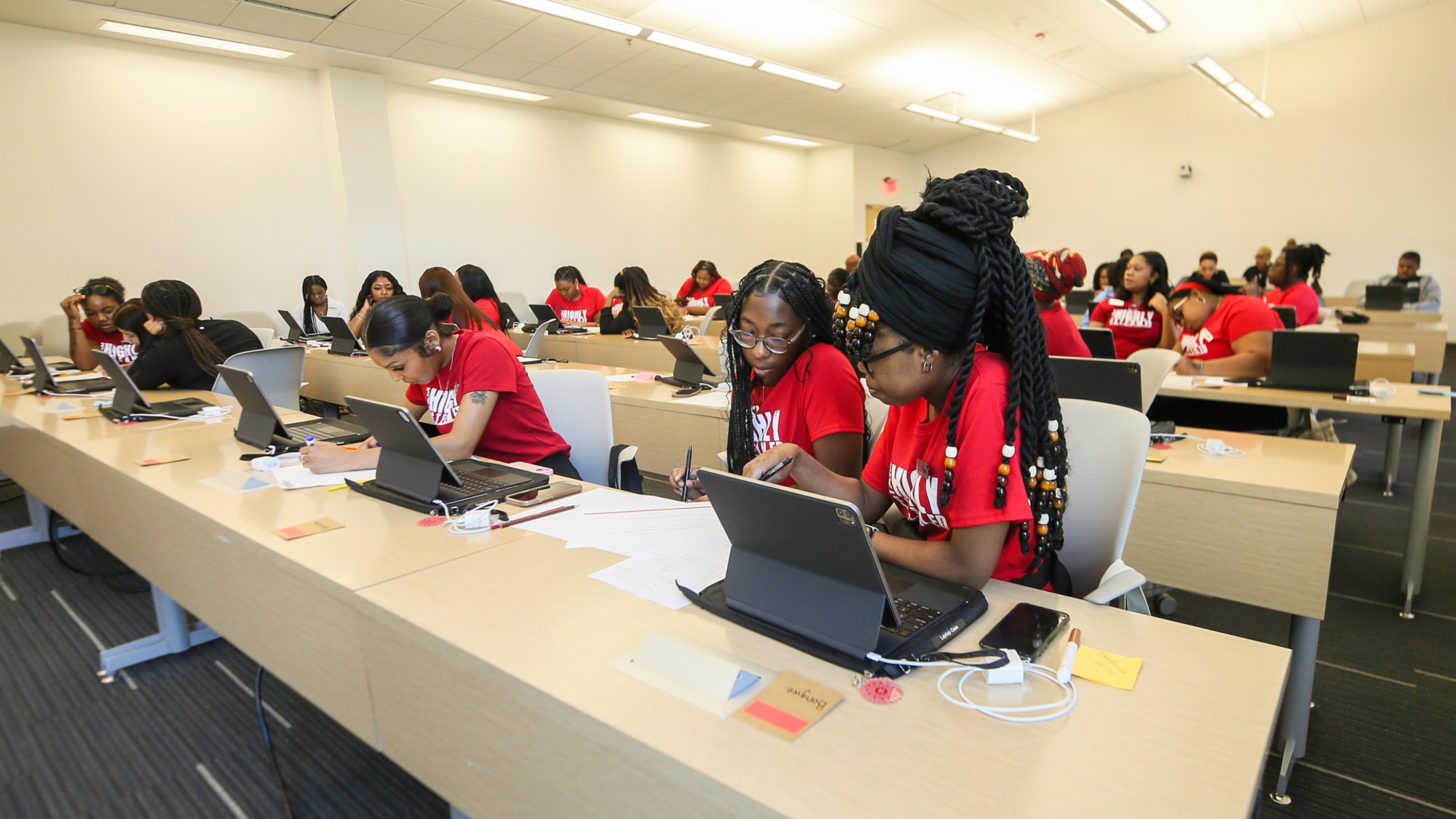Why Republicans will never reform immigration
Never. Not ever.


The Republican Party is never going to reform immigration. And it isn't just because of President Trump. The party's other leaders have decided that immigration is something you can talk about, use as an electoral wedge issue, or bang your fist about. But there will be no attempt to actually make policy on it, at least not anything that resembles the "reform" we've been promised for years.
We saw that clearly last week, when a small group of Republicans — "Most, but not all, represent swing districts with significant Latino constituencies or are retiring from the House," as The Washington Post noted — started a bit of a rebellion, attempting to get votes on the House floor on immigration reform proposals. They were trying to do it via a "discharge petition," a parliamentary technique that involves getting a majority of members to overrule the speaker of the House, who controls the schedule, and force a vote.
But Paul Ryan was having none of it. "Having some kind of spectacle on the floor that results in a veto doesn't solve this problem," he said. "What I don't want to do is have a process that just ends up with a veto. We actually want to solve the DACA problem."
The Week
Escape your echo chamber. Get the facts behind the news, plus analysis from multiple perspectives.

Sign up for The Week's Free Newsletters
From our morning news briefing to a weekly Good News Newsletter, get the best of The Week delivered directly to your inbox.
From our morning news briefing to a weekly Good News Newsletter, get the best of The Week delivered directly to your inbox.
But does he?
It depends on your definition of "want." I'm sure that in some corner of Republican lawmakers' hearts there is a bit of sympathy for DREAMers, the young people brought here as children who have done everything right and now face the prospect of deportation. President Trump, for instance, has talked many times about how he'll treat those terrific kids with compassion. But he also cancelled the DACA program. And he has lamented the fact that we get so many immigrants from "shithole countries," arguing that "we should have more people from places like Norway." His chief of staff, John Kelly, says that the trouble with undocumented immigrants is that they're "not people that would easily assimilate into the United States, into our modern society."
The very fact that Trump is president shows why his party is incapable of reforming immigration, or ever coming to some sort of grand bargain of the type that has often been suggested, in which he'd get funding for his border wall and Democrats would get protection for DREAMers.
After the 2012 election, the party commissioned an "autopsy" to figure out where it should go next. "We must embrace and champion comprehensive immigration reform," it said. "If we do not, our party's appeal will continue to shrink to its core constituencies only." It also said that "the Republican Party is one of tolerance and respect, and we need to ensure that the tone of our message is always reflective of these core principles."
A free daily email with the biggest news stories of the day – and the best features from TheWeek.com
Then Donald Trump came along and said, Oh yeah? Well get a load of this.
It's important to remember that the crowded field of Republican candidates Trump joined in 2015 were dancing carefully around the immigration issue. They knew it was tricky: The base didn't like anything that could be characterized as "amnesty" for undocumented immigrants, but they needed to look reasonable and moderate for the general election.
But Trump, who has a sixth sense for the most rancid poison swirling about in the voters' id, realized they were all wrong. Forget about what the broader electorate says they want: The road to victory, he realized, was paved with hate and fear. He was different from the rest of the GOP contenders in many ways, but more than anything else he was the one that presented the most unadorned version of white nationalism on offer.
It wasn't an act, and it got him both the nomination and the presidency. But it goes beyond Trump. Imagine that he decided not to run for re-election, and a passel of GOP senators and governors tried to lead the party in 2020. Do you think any of them would propose comprehensive immigration reform? Would they be foolish enough to think that they could win over the party's base that way?
For Republicans in Congress, the calculation is much the same. There are some that favor it publicly, but most Republicans represent districts and states where their biggest fear is a primary challenge from the right — and nothing will get you that challenge quicker than going soft on the foreign horde.
The events of the last year and a half were predictable: the cancelling of the DACA program, a wider immigration crackdown, and the occasional insincere assurance from Republicans that they really do want to do comprehensive reform — eventually. Just not now.
So if you're waiting for it — and some people are with their very lives at stake — the bad news is that you're going to have to wait until there's a Democratic president and a Democratic Congress. And even then, Republicans are going to put up a fight.
Paul Waldman is a senior writer with The American Prospect magazine and a blogger for The Washington Post. His writing has appeared in dozens of newspapers, magazines, and web sites, and he is the author or co-author of four books on media and politics.
-
 Breaking news: the rise of ‘smash hit’ rage rooms
Breaking news: the rise of ‘smash hit’ rage roomsUnder the Radar Paying to vent your anger on furniture is all the rage but experts are sceptical
-
 Did markets’ ‘Sell America’ trade force Trump to TACO on Greenland?
Did markets’ ‘Sell America’ trade force Trump to TACO on Greenland?Today’s Big Question Investors navigate a suddenly uncertain global economy
-
 ‘We know how to make our educational system world-class again’
‘We know how to make our educational system world-class again’Instant Opinion Opinion, comment and editorials of the day
-
 The billionaires’ wealth tax: a catastrophe for California?
The billionaires’ wealth tax: a catastrophe for California?Talking Point Peter Thiel and Larry Page preparing to change state residency
-
 Bari Weiss’ ‘60 Minutes’ scandal is about more than one report
Bari Weiss’ ‘60 Minutes’ scandal is about more than one reportIN THE SPOTLIGHT By blocking an approved segment on a controversial prison holding US deportees in El Salvador, the editor-in-chief of CBS News has become the main story
-
 Has Zohran Mamdani shown the Democrats how to win again?
Has Zohran Mamdani shown the Democrats how to win again?Today’s Big Question New York City mayoral election touted as victory for left-wing populists but moderate centrist wins elsewhere present more complex path for Democratic Party
-
 Millions turn out for anti-Trump ‘No Kings’ rallies
Millions turn out for anti-Trump ‘No Kings’ ralliesSpeed Read An estimated 7 million people participated, 2 million more than at the first ‘No Kings’ protest in June
-
 Ghislaine Maxwell: angling for a Trump pardon
Ghislaine Maxwell: angling for a Trump pardonTalking Point Convicted sex trafficker's testimony could shed new light on president's links to Jeffrey Epstein
-
 The last words and final moments of 40 presidents
The last words and final moments of 40 presidentsThe Explainer Some are eloquent quotes worthy of the holders of the highest office in the nation, and others... aren't
-
 The JFK files: the truth at last?
The JFK files: the truth at last?In The Spotlight More than 64,000 previously classified documents relating the 1963 assassination of John F. Kennedy have been released by the Trump administration
-
 'Seriously, not literally': how should the world take Donald Trump?
'Seriously, not literally': how should the world take Donald Trump?Today's big question White House rhetoric and reality look likely to become increasingly blurred
